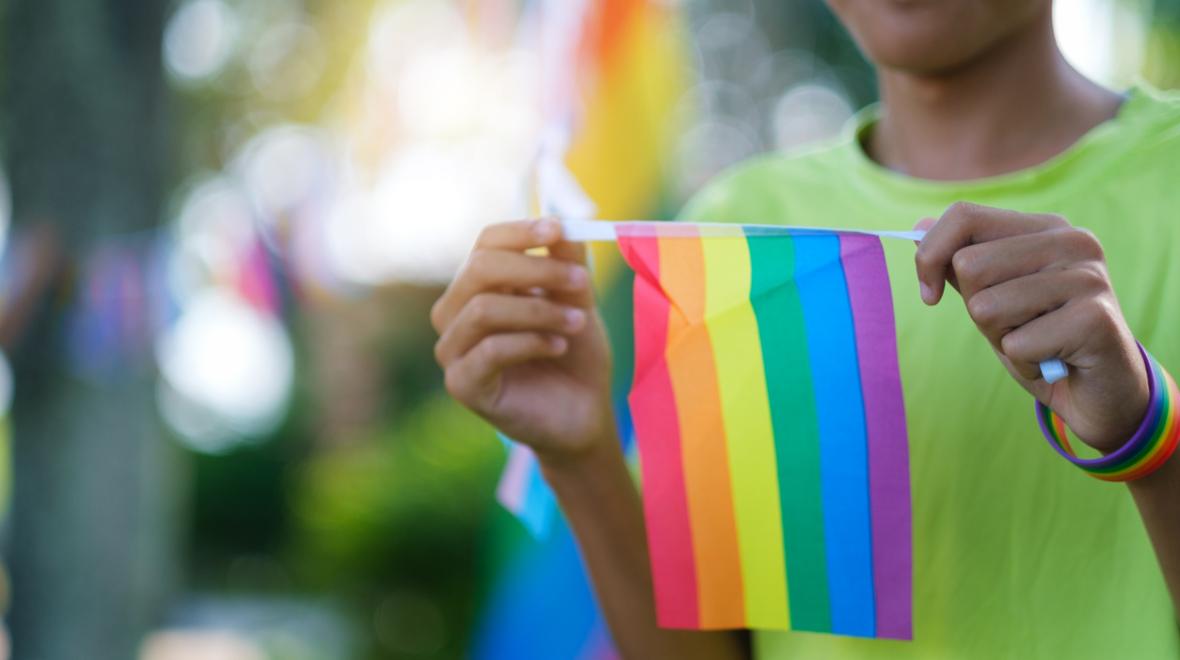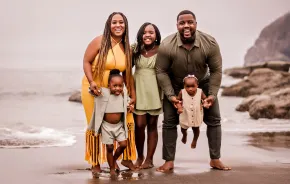
Photo:
Credit: iStock/Wutthinan Yosmadee
It’s that special time of year again—rainbow flags are fluttering in the grey and drizzly breeze, teens are emailing teachers to inquire about extra credit opportunities and parents are Googling “summer camps still open for enrollment” with abandon. Welcome to June, Puget Sound families.
To kick off Pride Month and celebrate the quickly-approaching summer break, let’s take a look at a recently released report from Pew Research on the state of LGBTQ inclusivity in our schools.
Survey information
This report, published in February 2024, reveals how teachers, students and parents feel about the inclusion of topics related to sexual orientation and gender identity in K–12 curricula. The data in this report comes from a web survey of 2,531 K–12 public school teachers,1,453 students ages 13 to 17, and 1,453 parents. It was conducted from October to November in 2023. All survey participants are based in the United States.
Controversy over ‘parental rights’ and LGBTQ inclusivity in schools
The ‘parental rights’ debate within the context of LGBTQ curriculum inclusivity is focused on whether parents should have the ability to opt their children out of lessons and materials that explore topics related to sexual orientation and gender identity in schools.
Supporters of LGBTQ inclusivity argue that inclusive education is essential for fostering understanding and acceptance of diverse identities, and that allowing opt-outs undermines these educational goals.
Opponents to LGBTQ inclusivity argue that parents should have the right to limit and control their children’s exposure to education on topics related to gender and sexual orientation. For some parental rights activists, this opposition also includes fighting against comprehensive sex education as well as lessons on race and identity.
Full disclosure: I’m a gay mom and a former public school teacher here in the Puget Sound region. I believe that inclusive school communities are safer and more enriching for all students, educators and families.
Teacher perspectives on the ‘parental rights’ debate
Less than half of K–12 teachers (48 percent) stated that parents should be able to opt their children out of learning about LGBTQ topics in school.
While the majority of teachers (53 percent) feel the ongoing public discourse about LGBTQ inclusivity in curricula has not impacted their jobs, a substantial 41 percent of teachers reported that these debates have negatively affected their ability to teach. Only 4 percent stated that these public controversies are having a positive impact.
Notably, 71 percent of teachers expressed that they lack sufficient influence over what is taught in their schools in general. Many stated that the federal government, local school boards and parents exert excessive influence over educational content.
Teacher perspectives on gender identity education
Teachers are divided on whether students should learn about gender identity, specifically whether a person’s gender can differ from sex assigned at birth.
Half (50 percent) of the K–12 teachers stated that students should learn about gender identity in school.
Broken down by grade level, this opinion differed greatly amongst teachers. A majority of middle and high school teachers (51 percent and 60 percent respectively) support students’ opportunity to learn about gender identity in school, while only 35 percent of elementary level teachers felt the same way.
Of all of the teachers who stated that students should learn about gender identity in school, more than twice as many respondents stated that students should learn that a person’s sex at birth does not necessarily determine whether their gender identity is female or male. Only 14 percent stated that students should learn that gender is determined by sex at birth.
Parent perspectives on gender identity education
Interestingly, parent preferences about gender identity lessons in the classroom were fairly evenly split.
About one third of parents (31 percent) said they want schools to teach that gender can differ from a person’s sex at birth. 32 percent stated they want their children to learn gender is determined by sex at birth. And 37 percent said their children shouldn’t learn about gender identity in school at all.
Student perspectives on gender identity education
Teens were fairly evenly divided over opinions on teaching about gender identity in school.
26 percent of students stated that they support learning that a person’s gender can be different from their sex at birth. The same percentage of students stated that schools should teach that gender is determined by sex at birth.
About half of the students (48 percent) said that students should not learn about gender identity in school at all.
A hot-button issue rarely brought up in everyday classrooms
Interestingly, despite seemingly stark divisions and strong opinions expressed both in this survey and in public discourse, this report also revealed that LGBTQ-related topics are rarely discussed in schools. 68 percent of K–12 teachers reported that LGBTQ issues “rarely or never” surfaced in their classroom during the 2022–23 school year.
More from our rainbow flag-draped Pride desk …
|











